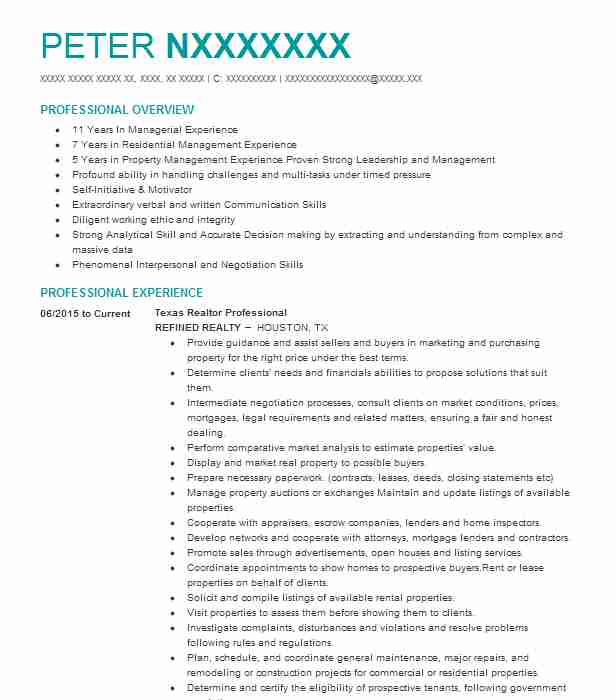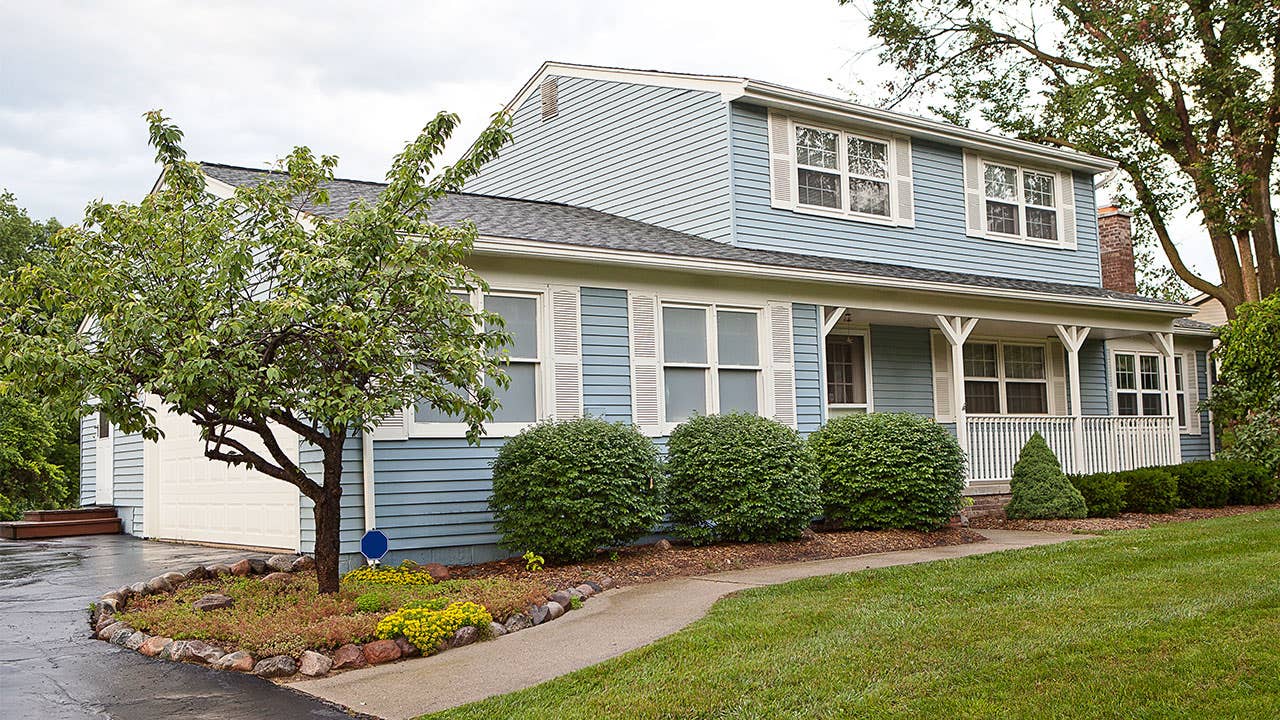
Minnesota requires you to meet certain criteria before you can receive a license as a real estate agent. Minnesota Commerce Department wants to ensure that all real estate agents are licensed and competent to work in the state. The minimum requirements are that you be at least 18 and legal citizens of the United States. Most users do not have to be citizens, although it is possible to be denied a license for any criminal history, unpaid court judgments, or discipline actions against your professional license. A real estate license should not be denied if you are involved in unlicensed real-estate activity.
Pre-license education
Pre-license education in Minnesota is an essential part of becoming a licensed agent. This can increase your chances of passing and help you avoid retaking the exam. Minnesota's licensing process for real estate agents takes about four months. The licensing process depends on completing the pre-license education course, passing the exam and being sponsored by a licensed brokerage.
You can start your education online for your Minnesota real-estate license. The online courses are three hours long and will help you to earn your license. These courses include topics like real estate principles, valuation, financing, and many other topics. Online courses are available through providers such as ContinuingEd Express. They offer both online and live streaming courses.

Continuing education requirements
Minnesota real-estate salespeople must complete a minimum of fifteen hours annually in continuing education. Over a two-year period, that's 30 hours. You can complete the required CE in real estate through a variety of methods, including online classes or on-demand webinars. Kaplan provides both live and on-demand classes to fulfill the state's continuing educational requirements. Kaplan's online courses qualify for real estate CE credit of 3.75 hours.
Minnesota Real Estate Commission has adopted new real estate CE credit system. Real estate licensees are required to complete at least eight hours of continuing educational in one day and no more than fifteen hours in a 24-hour time period. Minnesota's continuing learning requirements require that salespersons and brokers complete a CE module before they can become licensed. These courses provide 3.75 hours CE credit and must be completed prior to June 30, 2022. An MNR Academy website allows you to complete a course online without the need for a live instructor. Some courses can be viewed live, and others are self-paced. Exam prep courses include both the national exam and the state portion of the Minnesota licensing exam.
Exam
Examining to get a real estate license in Minnesota is a process that must be passed in order to practice in the state. This examination helps protect the public and ensures that an individual is competent. The state regulatory agency establishes a standard for safe practices. The exam is designed to confirm that an individual has met those standards. The Minnesota real estate licensing examination is administered by Pearson VUE.
Minnesota's real estate license requires that applicants have successfully completed both a prelicense education program and passed the state exam. The state requires that applicants are at least 18 years of age and a legal permanent resident of the United States. Minnesota has reciprocity deals with many other states, such as Wisconsin. Minnesota has reciprocity agreements with several other states. You do not need to take any prelicensing courses if you're a licensed agent in one of these states. You can submit a request through the PULSE Portal. Once you have received a letter from them certifying your current licence, you will be able to pass the state part of the exam. In Wisconsin, however, you must take a 13-hour Wisconsin-to-Minneseta prelicensing course.

Cost
The first step in becoming a real estate agent in Minnesota is to obtain a real estate license. You can complete the entire process online with the exception that you must take the exam in person. This article will discuss the process and give details about the costs and the time required. We'll also be discussing the content of the exam and providing some resources to help you find more information.
Minnesota requires that all licensed real estate agents have completed at least 90 hours in pre-licensing training. These can either be taken online, or in classrooms. On-demand online courses are usually the most cost-effective. A typical package will include three courses. These typically cost between $200 and $300.
FAQ
How many times can my mortgage be refinanced?
This will depend on whether you are refinancing through another lender or a mortgage broker. You can refinance in either of these cases once every five-year.
How do I repair my roof
Roofs can leak due to age, wear, improper maintenance, or weather issues. Roofers can assist with minor repairs or replacements. Contact us for more information.
Can I get a second loan?
However, it is advisable to seek professional advice before deciding whether to get one. A second mortgage is often used to consolidate existing loans or to finance home improvement projects.
Statistics
- Based on your credit scores and other financial details, your lender offers you a 3.5% interest rate on loan. (investopedia.com)
- Over the past year, mortgage rates have hovered between 3.9 and 4.5 percent—a less significant increase. (fortunebuilders.com)
- Some experts hypothesize that rates will hit five percent by the second half of 2018, but there has been no official confirmation one way or the other. (fortunebuilders.com)
- 10 years ago, homeownership was nearly 70%. (fortunebuilders.com)
- It's possible to get approved for an FHA loan with a credit score as low as 580 and a down payment of 3.5% or a credit score as low as 500 and a 10% down payment.5 Specialty mortgage loans are loans that don't fit into the conventional or FHA loan categories. (investopedia.com)
External Links
How To
How to Manage a Rent Property
Although renting your home is a great way of making extra money, there are many things you should consider before you make a decision. We will show you how to manage a rental home, and what you should consider before you rent it.
If you're considering renting out your home, here's everything you need to know to start.
-
What is the first thing I should do? Consider your finances before you decide whether to rent out your house. If you have any debts such as credit card or mortgage bills, you might not be able pay for someone to live in the home while you are away. It is also important to review your budget. If you don't have enough money for your monthly expenses (rental, utilities, and insurance), it may be worth looking into your options. It might not be worth the effort.
-
How much does it cost for me to rent my house? Many factors go into calculating the amount you could charge for letting your home. These include things like location, size, features, condition, and even the season. Prices vary depending on where you live so it's important that you don't expect the same rates everywhere. Rightmove shows that the median market price for renting one-bedroom flats in London is approximately PS1,400 per months. If you were to rent your entire house, this would mean that you would earn approximately PS2,800 per year. Although this is quite a high income, you can probably make a lot more if you rent out a smaller portion of your home.
-
Is it worth it? Although there are always risks involved in doing something new, if you can make extra money, why not? It is important to understand your rights and responsibilities before signing anything. Your home will be your own private sanctuary. However, renting your home means you won't have to spend as much time with your family. These are important issues to consider before you sign up.
-
Are there any benefits? It's clear that renting out your home is expensive. But, you want to look at the potential benefits. There are plenty of reasons to rent out your home: you could use the money to pay off debt, invest in a holiday, save for a rainy day, or simply enjoy having a break from your everyday life. You will likely find it more enjoyable than working every day. If you plan ahead, rent could be your full-time job.
-
How do I find tenants Once you've decided that you want to rent out, you'll need to advertise your property properly. Listing your property online through websites like Rightmove or Zoopla is a good place to start. Once potential tenants reach out to you, schedule an interview. This will help to assess their suitability for your home and confirm that they are financially stable.
-
How can I make sure that I'm protected? If you fear that your home will be left empty, you need to ensure your home is protected against theft, damage, or fire. You will need to insure the home through your landlord, or directly with an insurer. Your landlord will usually require you to add them as additional insured, which means they'll cover damages caused to your property when you're present. If your landlord is not registered with UK insurers, or you are living abroad, this policy doesn't apply. In such cases you will need a registration with an international insurance.
-
Sometimes it can feel as though you don’t have the money to spend all day looking at tenants, especially if there are no other jobs. You must put your best foot forward when advertising property. A professional-looking website is essential. You can also post ads online in local newspapers or magazines. Additionally, you'll need to fill out an application and provide references. Some people prefer to do everything themselves while others hire agents who will take care of all the details. You'll need to be ready to answer questions during interviews.
-
What happens after I find my tenant?After you've found a suitable tenant, you'll need to agree on terms. If you have a lease in place, you'll need to inform your tenant of changes, such as moving dates. If you don't have a lease, you can negotiate length of stay, deposit, or other details. While you might get paid when the tenancy is over, utilities are still a cost that must be paid.
-
How do I collect my rent? When the time comes to collect the rent, you'll need to check whether your tenant has paid up. If not, you'll need to remind them of their obligations. After sending them a final statement, you can deduct any outstanding rent payments. If you're struggling to get hold of your tenant, you can always call the police. If there is a breach of contract they won't usually evict the tenant, but they can issue an arrest warrant.
-
How do I avoid problems? Although renting your home is a lucrative venture, it is also important to be safe. You should install smoke alarms and carbon Monoxide detectors. Security cameras are also a good idea. Make sure your neighbors have given you permission to leave your property unlocked overnight and that you have enough insurance. You must also make sure that strangers are not allowed to enter your house, even when they claim they're moving in the next door.